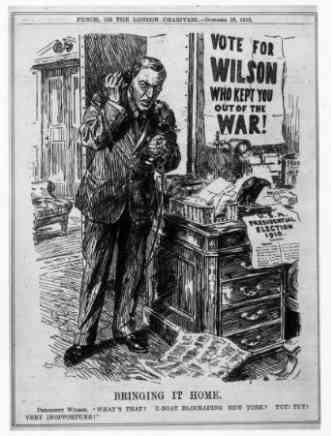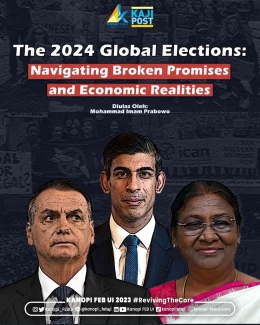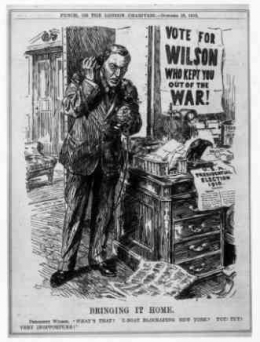"If you have been voting for politicians who promise to give you goodies at someone else's expense, then you have no right to complain when they take your money and give it to someone else, including themselves"
Thomas Sowell
Every turn of the year is only for resolutions that we put together to achieve in the following year, whether it is fulfilled, remains an answer that is in doubt. Resolutions are as good as that, mere words. The same can be said for those words that are uttered by politicians trying to hold on to power or to cripple the status quo. One can feel cynical or even apathetic towards an election in one region, but 2024 is a year that keeps on giving, as a projected 2 billion people from 50 countries go to the polls to not only choose their countries' decision makers, but the world, as world leaders, US, UK, Russia, India, Indonesia, Brazil, and many more are in that lists. Suffice to say that this will be a year that is crucial not only for the next 4-6 years but for generations to come.
So what? Let's not forget those elections also impacted the economy as government decision-making is to be halted as money that should be used for public works is funneled to campaigns, this could indirectly impact not only one regional economy but again the global stage is to be affected. Recent projections by the Macro Economic Policy Center of the Fiscal Policy Agency in the Indonesian elections will impact the GDP of Indonesia is expected to rise as much as 1% in 2024. With estimates showing that these election numbers can blow up, how can we take this into account in terms of the economy?
Navigating Broken Promises: Cases in the United States
The broken promises made by politicians in previous elections have had a significant impact on public trust and the electorate's perception of political integrity. Campaign promises are often used as a means to win elections, but they are not always fulfilled. Examples included President Woodrow Wilson's 1916 promise to keep the United States out of war was followed by a request for a declaration of war against Germany just 29 days into his second term.

Similarly, President George H.W. Bush's pledge of "Read my lips: no new taxes" was later compromised due to budget shortages. President Barack Obama's promise to "close the partisan divide in Washington" was not achieved, contributing to a larger partisan divide when he left office. President Donald Trump's promises to repeal Obamacare, build a wall along the border of Mexico, and have Mexico pay for it were not fully realized. These examples demonstrate the far-reaching consequences of unfulfilled promises on public perception and trust in the political process.
The reasons behind broken promises are multifaceted. Campaign promises, often made in the heat of the moment, may not fully align with the complex realities of governance. Unforeseen events, changing circumstances, and the need to compromise in the face of budget shortfalls or political polarization can all contribute to the inability to fulfill promises. Additionally, the inherent challenges of translating campaign rhetoric into actionable policies within the constraints of the political system can lead to unmet expectations. It is essential for voters to critically evaluate campaign pledges, and consider the dynamic nature of governance and the potential impact of external factors on promise fulfillment.
Between the Global Tensions Within Democracies
The current global economic situation is marked by a slowdown in growth, with estimates for 2023 growth at only 1.4%. This slowdown is influenced by factors such as the pandemic, supply chain disruptions, and the slowing of the Chinese economy. Long-term challenges like inequality, housing affordability, and unemployment are particularly relevant for younger voters, but they often take a backseat to geopolitical tensions, such as those between China and Taiwan.
The relationship between economic realities and the electorate is complex, as voters must navigate a variety of issues that impact their lives. Economic concerns, such as inflation and job security, are often prioritized, but they can also be influenced by partisan politics and other factors. For example, in the 2022 US midterm elections, economic issues were a top concern for most voters, but there was a pronounced partisan divide in terms of which issues mattered most to each party.
In the case of Taiwan's election, economic realities play a significant role in shaping the political landscape. Beijing's threats to use force to claim self-governed Taiwan are not just about missiles and warships, but also about the long-term economic challenges faced by the island. Taiwan's economy is heavily influenced by China, with the Chinese mainland and Hong Kong accounting for about 35% of Taiwan's exports and about one-quarter of its imports. Despite these economic ties, any overt military action by China would come at a huge cost to the Chinese economy.
So what now?
In the tumultuous landscape of the elections in 2024, the impact will surely reach far beyond political shifts; it profoundly influences economic trajectories on both national and international scales. As voters navigate this web of promises from politicians, we must understand as voters that unfulfilled pledges erode public trust and confidence in the government itself. In a year that is crucial not only for one country but the whole global landscape, voters must be vigilant and be aware of campaign messaging and identity politics. That most often than not, these promises are the same as resolutions, mere words that sometimes do not have actual backing of realization.
References
Broken presidential campaign promises since 1916. (2020, June 26).
Spokesman.com.https://www.spokesman.com/stories/2020/jun/26/broken-presidential-campaign-promises-1916/
Cohn, N. (2023, December 14). Vibes, The Economy and Elections. The New York
Times.https://www.nytimes.com/2023/12/14/upshot/economy-vibes-election-biden.html
Edwards-Levy, A. (2022, November 5). Polling shows that most voters say economic
concerns are top of mind | CNN politics. CNN. https://edition.cnn.com/2022/11/05/politics/voters-issues-economy-midterms-2022/index.html
IMF, & Frieden, J. (2020, June). The Political Economy of Economic Policy.
Kight, S. W. (2017, December 15). 10 Big Broken Promises of Past President. Axios.
https://www.axios.com/2017/12/15/10-big-broken-promises-of-past-presidents-1513301978
Kunterbach, E. (2024, January 11). Taiwan's election is shaped by economic
realities, not just Beijing's threats to use force. AP News. https://apnews.com/article/taiwan-china-election-economy-trade-e389719ff970f91d1969cac49817cbae
Kunterbach, E. (2024, January 11). Taiwan's election is shaped by economic
realities, not just Beijing's threats to use force. ABC News. https://abcnews.go.com/Business/wireStory/taiwans-election-shaped-economic-realities-beijings-threats-force-106283851
Parti, T., & Dapena, K. (2024, January 1). The campaign promises that Joe Biden
kept---and those he broke. WSJ. https://www.wsj.com/politics/elections/joe-biden-presidential-campaign-promises-kept-broken-5e1e4f85
Politifact. (n.d.). Trump-O-Meter. PolitiFact.
https://www.politifact.com/truth-o-meter/promises/trumpometer/?ruling=true
Pruitt, P., & Seales, C. (2019, April 10). The grand history of broken promises from
presidential candidates. Scripps News. https://scrippsnews.com/stories/telling-fact-from-fiction-in-political-promises/
Baca konten-konten menarik Kompasiana langsung dari smartphone kamu. Follow channel WhatsApp Kompasiana sekarang di sini: https://whatsapp.com/channel/0029VaYjYaL4Spk7WflFYJ2H








